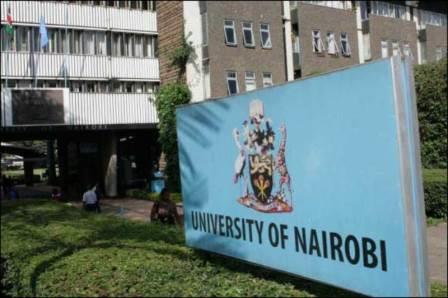Public Universities in Turmoil As Government Fails To Allocate Funds
The government has failed to allocate Kshs. 74 billion to help bring financial stability to public universities meaning the institutions are set for another year with financial problems.
Many colleges are already experiencing problems due to having enormous debt which has been a stumbling block in their day-to-day operations.
The Executive Officer of the Universities Fund Board, Geoffrey Monari has said that the allocation would continue to decrease because of the rising number of government-sponsored students which could hinder operations and even academic programs.
He said that in the last five years, the financing gap at public universities had risen to Kshs. 96.3 billion while for private universities the gap was Kshs. 24.4 billion.
The decrease is at an average of Kshs. 84,217 which is 44.86% of the Differential Unit Cost (DUC) to Kshs. 40,366 at 21.94%.
The Principal Secretary for Education Amb Simon Nabukwesi submitted documents indicating that out of the Kshs. 167.8 billion requested, only Kshs. 72.3 billion was provided.
Budget shortages were huge at approximately Kshs. 54 billion which started the university financial crisis last year.
Nabukwesi said that only Kshs. 920 million was granted for research and innovation despite the requested amount being Kshs. 2.6 billion.
According to Monari, UF cannot finance the requisite 80 per cent
“We do not have enough money to fund the students at 80 per cent of DUC,” said Monari.
“There is a deficit of Kshs. 20.1 billion for the 2021 Kenya Certificate of Secondary Education (KCSE) examination cohort. It is a very difficult task for the universities and us,” said Monari.
According to Monari, Kshs. 44 billion is available for 356,188 pupils in this financial year which is Kshs. 123,597 per student.
Monari also said that funding has decreased from 66.4% in 2018 to60.7% in 2019 and then 53.77% in 2020.
In the 2021-22 financial year, universities needed Kshs. 149 billion but were given only Kshs. 95 billion out of which Kshs. 4.3 billion was allocated as infrastructure money.
In the 2022-23 fiscal year, the deficit rose to Kshs. 74 billion exposing the difficult times for institutions of higher learning.
While the DUC requirement is to finance 80% of the student’s tuition charge, only 53.7% of funds were provided.
Incomplete projects in public universities that are worth Kshs. 52.8 billion as of 2020 could face penalties.
The Government is also planning to spend Kshs 47.3 billion on universities in the 2022-23 fiscal year. Out of this 44 billion will go to public universities.
In the 2020-21 Kshs. 41.9 billion was allocated to 271,446 pupils while in 2021-222 43.8 billion was allocated to 324,182 students.
University of Nairobi Vice-Chancellor Prof Stephen Kiama called on the government to treat universities fairly.
According to him the University of Nairobi had one of the country’s worst deficits and cannot pay its workers’ pensions and other mandatory deductions.
According to Monari, institutions must be innovative in addressing declining government support.
The universities must raise further funds. The UF and National Treasury are trying to enhance supplementary budget funding.
Kiama implored the institutions to change procedures to reduce financial utility and boost value.
Universities relied on Module II students to cover the gap but the lowering of cut-off points have affected their operations.
This was following the government lowering the university admittance grade from B to C+ three years ago for students who are sponsored by the government.



Comments are closed.